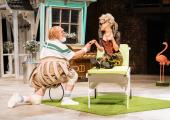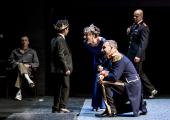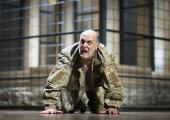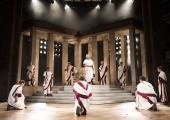The Merry Wives of Windsor, RSC, Barbican review - panto Shakespeare

A love it or leave it production that sends the RSC on its laboured way to Essex
For those of us who have never thought much before about links between pantomime and Shakespeare, Fiona Laird’s new Merry Wives offers a chance to see how the combination works.









